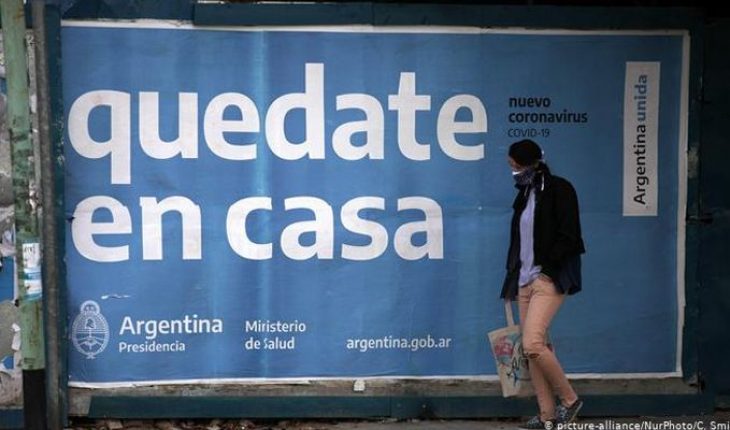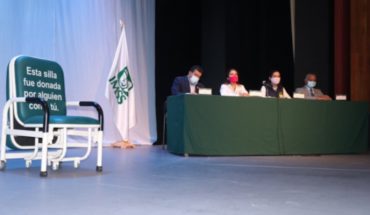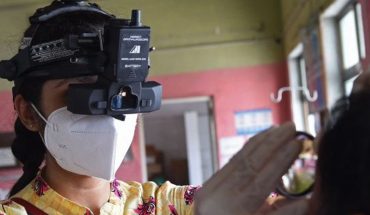Argentina is about to enter the list of the 10 countries with the highest number of coronavirus contagions, embroiled in a political confrontation scenario that ended with the conciliation stage led by President Alberto Fernández, who during the first months of the pandemic achieved the necessary consensuses to impose a comprehensive strategy with the backing of the opposition.
Unlike other countries, where a pact was never reached between opponents and officials to deal with the health emergency, each time he announced the extension of quarantine, particularly in the Buenos Aires Metropolitan Area (AMBA), the president made the corresponding announcements accompanied by governors of rival parties to his Peronist alliance.
Some of the most emblematic cases were those of the head of government of the City of Buenos Aires, Horacio Rodríguez Larreta, militant of the PRO, the party of Mauricio Macri, and Gerardo Morales, governor of the province of Jujuy and one of the leaders of the Radical Civic Union, who showed themselves next to Fernández, an unprecedented postcard in Argentina, which goes through more than a decade of intense polarization.
In recent weeks, however, the political tension deepened again and was evident Friday night, when the president announced a new quarantine extension on Friday night. “The Buenos Aires Metropolitan Area, as happened in the world and with the most populated cities, is the area where it has been necessary to maintain restrictions for longer. There seems to be some encouraging facts there, but it should not lead us to a state of relaxation or confidence. We are far from solving the problem,” he said, referring to the region that the province and the city of Buenos Aires share, and which is the epicentre of the pandemic, as they house more than 90% of cases and deaths by covid-19.
A short time earlier, Fernandez had met with the governor of the province of Buenos Aires, Axel Kicillof, who is his party partner, and with Rodríguez Larreta, but for the first time decided not to hold a joint press conference to announce the new measures, in a country where there are already 408,426 contagions and which ranks in the tenth place in the world and about to outnumber Chile , which ranks 10th in a ranking led by the U.S., Brazil and India.
Suspicions that the harmony between the rulers had been confirmed on Monday, as in simultaneous press conferences, Kicillof and the Minister of Health of the city of Buenos Aires, Fernando Quirós, were completely contradicted by analyzing the state of the pandemic.
While the governor was more concerned and reluctant to open the activities, Rodriguez Larreta’s minister said the worst had already happened.
“There’s a portion of society that doesn’t seem to see what’s going on. I wonder if we are not transmitting it badly and how we can communicate it better,” Kicillof warned in announcing the tightening of traffic restrictions in 11 municipalities in the province of Buenos Aires.
“We seem to live in two different countries, two parallel situations. These two countries must be reunited. There is a society that seems not to see what is happening and the other is the ones who work to sustain the health system. We’re all fed up, I have kids who don’t go to school either, and I can’t see friends and family,” he added.
In a clear and critical allusion to the capital government, Kicillof considered it a mistake to open activities prematurely only because the polls reveal the citizen’s annoyance with the rules to comply with social, preventive and compulsory isolation. “We can’t risk what we achieved in five months, I can’t allow it. With what face will I explain to the doctors that while they do not feed on the therapies we continue to authorize activities?” he said.
He also insisted that the province and the capital are not two separate areas, as they host the greatest number of cases and share extremely fragile epidemiological situations, even though from the city of Buenos Aires they want to boast of some stability in contagions and deaths.
“A growing trend was consolidated, the situation is no better, nor equal: it is worse. It’s not a political fact, it’s an epidemiological fact,” he said.
On the contrary, the Minister of Health of Buenos Aires defended the increasingly lax quarantine of the capital, where from this Monday attention was reopened in bars and remaining with outdoor tables, a measure with which President Alberto Fernández expressed his disagreement publicly. “The worst moment has already passed, it was in August, but the more we take care of ourselves, the faster cases are going to drop,” he said, insisting that there is a stability of around 1,100 contagions per day for seven weeks, despite the gradual opening of quarantine.
“We see a lot of new activities that we were able to release and the curve remains stable, so there we can’t find any reason to explain that there is an increase in contagion because the measures we are releasing lead to a decrease in the curve,” he said.





